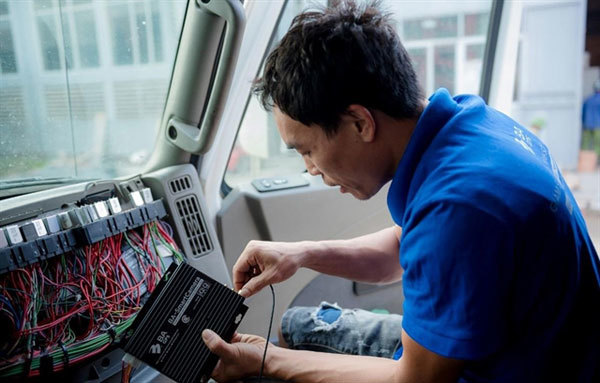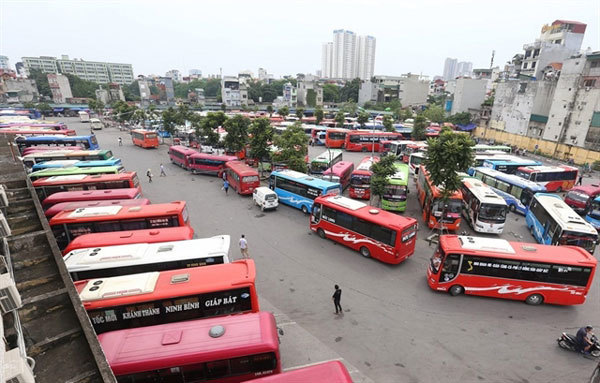 |
| Installation of camera systems in vehicles. — VNA/VNS Photo |
Hanoi Transerco has 150 vehicles that fall under the Government Decree, and the company has finished installing camera systems, according to its Director Dao Viet Dung.
“After the cameras are installed, we still have to pay a monthly fee to repair and service them, as well as bandwidth fees,” said Dung, “In these turbulent times, these are hefty costs and we wish that such burdens can be alleviated in the future”.
However, not many transport businesses have acted as quickly as Transerco. According to the Hanoi Department of Transport, only 6,062 transport companies with 11,032 vehicles have finished installation of cameras. This is just 32 per cent of the total number of transport vehicles in the city.
“Hanoi is quicker than most parts of the country in adhering to the Decree,” said Dao Viet Long, deputy director of the Hanoi Department of Transport.
Long said the number of cameras was still too low.
Some transportation businesses have asked the department to push back the deadline, “but our stance, as well as that of the Government and the Ministry of Transport is no more delays,” said Long.
In northern Bac Ninh Province, the rate of vehicles with cameras installed varied from 30-60 per cent; while in northern Yen Bai Province, the number was lower, at 28 per cent. The local departments of transport argue that transport businesses have suffered losses during the pandemic, and paying for these camera systems will put a further toll on their finances.
The Directorate for Roads of Vietnam (DRVN) has urged the local authorities of all 63 provinces and cities to finish camera installation by December 31, according to Do Cong Thuy, deputy director of the DRVN.
The DRVN also pushed enforcers to inspect vehicles and punish those that does not adhere to the rules.
The Vietnam Automobile Transportation Association also called on its members to install cameras before the December 31 deadline. Members are also recommended to install cameras that pass the technical standard TCVN13396, with 4G technology.
“Businesses like to let grass grow under their feet,” said Phan Anh Tung, director of Gisviet. “This is the same situation that happened before with blackbox installation. The demand for purchase and installation rises around 15 days before the deadline.”
The price for installation was around VND10-12 million (US$436-523) at the beginning of the year, but has since dropped to VND3-5 million. This drop is explained by an increase in suppliers, according to Director of Toan Cau Company Le Dinh Son.
Some transport departments have also allowed vehicles in operation to install cameras first, while vehicles being repaired or not in operation do not have to install.
“Authorities should be flexible with businesses. Our company allows partners to pay in instalments, and that flexibility has helped many companies,” said Son.
But vehicles should not wait any longer. The Vietnam Register reiterated that they will deny registration for any transport vehicles without cameras after December 31.
Deputy Prime Minister Le Van Thanh also urged authorities to investigate and sanction vehicles and/or businesses that do not adhere to the regulations.
A 2019 Decree states that vehicles without camera systems are subject to fines up to VND12 million if they enter traffic.
Source: Vietnam News

Surveillance cameras in buses on the way
Some 170,000 buses, coaches and mini-buses will need to have two in-vehicle surveillance cameras from July next year.

Ministry proposes installing cameras to detect traffic violations
Regarding the Ministry of Public Security’s proposal to install cameras and impose fines for traffic violations on highways, experts said this should have been done a long time ago.